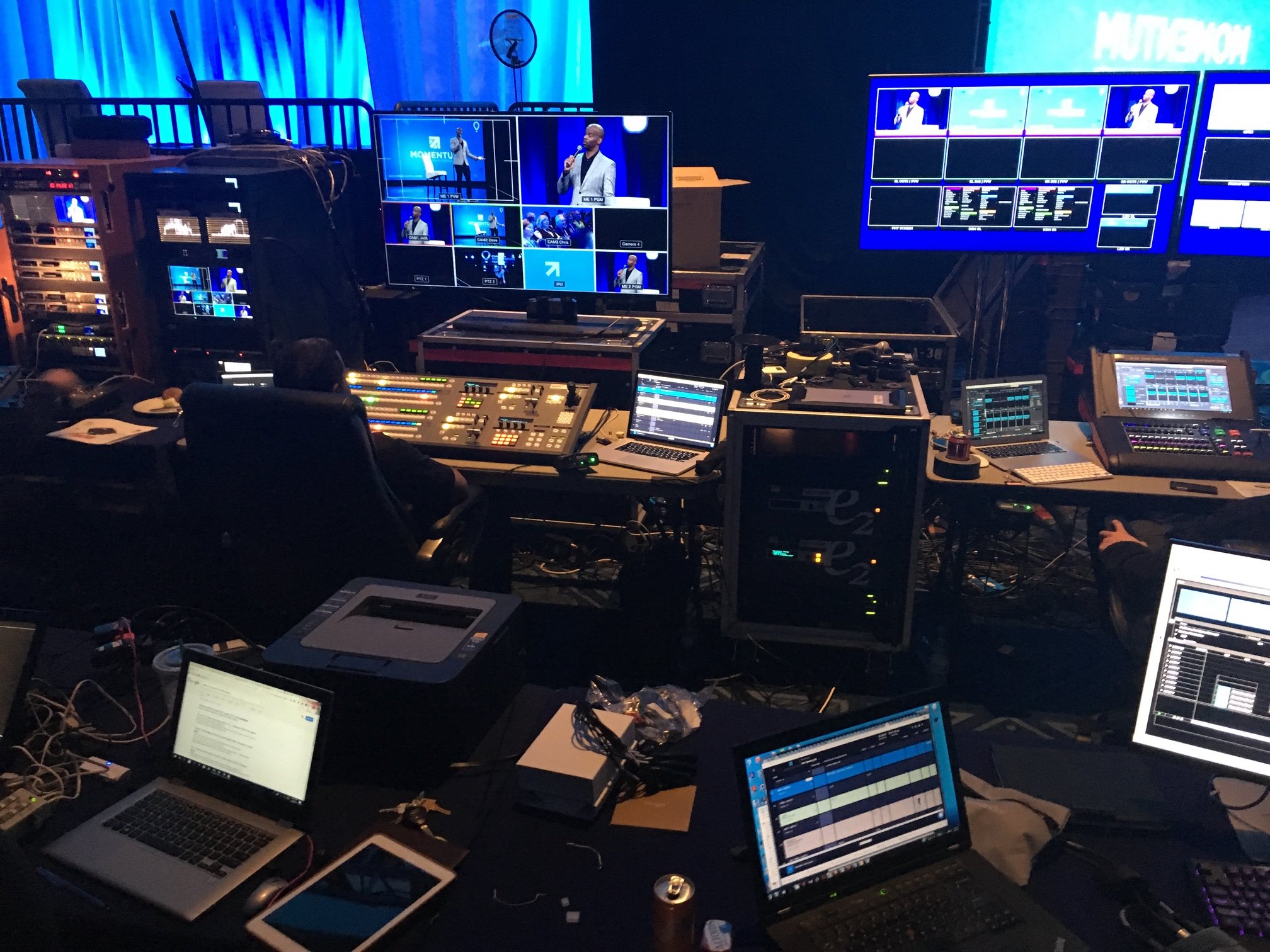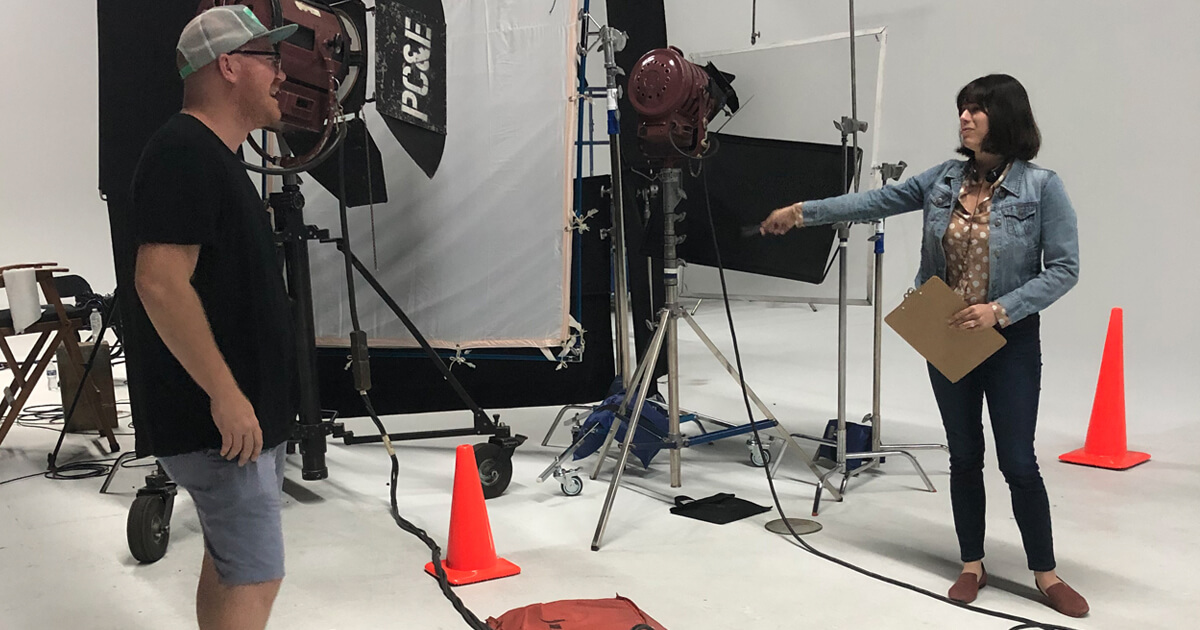Recognizing Event Production: Why It Is Crucial for Successful Gatherings
Event production plays a vital function fit effective celebrations. It includes cautious preparation, control, and execution to guarantee every detail straightens with the event's vision. This process not just enhances participant experiences but also promotes purposeful links among individuals. Understanding the complexities of event production can substantially affect the total result. What are the essential aspects that add to a successful event, and exactly how can they be successfully managed?
The Function of Event Production in Producing Unforgettable Experiences
Although several elements add to the success of an event, event production plays a pivotal role in crafting unforgettable experiences. This diverse procedure encompasses various elements, including preparation, logistics, and execution. Effective event production assurances that every detail straightens with the general vision, developing a smooth circulation that astounds attendees. By collaborating timelines, taking care of sources, and looking after technological facets, event producers establish a structure for impactful experiences.Moreover, they curate settings that reverberate with the target market, boosting engagement and emotional connection. From picking appropriate locations to integrating cutting-edge innovation, the choices made throughout production significantly influence exactly how guests regard and bear in mind the event. By focusing on top quality and focus to detail, event production transforms normal gatherings into remarkable minutes, leaving long lasting perceptions. Eventually, the skilled orchestration of these elements specifies the significance of an occasion, showcasing the value of professional event production in attaining extraordinary results.
Key Components of Successful Event Production
Effective event production rests on a number of key elements that ensure success. Preparation and sychronisation establish a solid foundation, while technical arrangement needs attend to logistical needs. In addition, applying target market engagement techniques enhances the total experience, making the event unforgettable.
Preparation and Control
Preparation and control act as the foundation of successful event production, making sure that every detail lines up effortlessly to produce an unforgettable experience. Reliable planning entails developing a clear vision and goals, while sychronisation involves the meticulous organization of logistics, routines, and sources. A distinct timeline is crucial, guiding all stakeholders through critical turning points and tasks. Interaction plays a critical role, cultivating collaboration among team participants, suppliers, and location team. Normal meetings and updates help to attend to obstacles without delay, guaranteeing that everybody continues to be straightened with the event goals. Ultimately, an organized approach to planning and sychronisation not just improves effectiveness yet likewise significantly contributes to the total success and enjoyment of the event for participants and organizers alike.
Technical Setup Demands
An effective event depends greatly on its technical configuration demands, which encompass important components such as audio-visual tools, lights, hosting, and connection. Audio-visual devices consists of microphones, speakers, and projectors, ensuring that presentations and efficiencies are delivered clearly. Appropriate illumination improves the setting and highlights essential locations, while organizing offers the necessary platform for audio speakers and entertainers. Connectivity, consisting of Wi-Fi and electrical accessibility, is important for seamless communication and technology assimilation. Each component must be thoroughly planned and performed, tailored to the event's details needs. Poor technical arrangements can bring about disruptions, negatively affecting the general experience for guests, highlighting the significance of extensive preparation and focus to information in event production.
Audience Involvement Strategies

The Relevance of Planning and Sychronisation
Preparation and sychronisation are important to the success of any event production. Effective timeline administration, source allocation strategies, and group communication dynamics play crucial duties in making certain that all elements come together perfectly. Without an organized strategy to these facets, events take the chance of dealing with delays, spending plan overruns, and miscommunication amongst employee.
Reliable Timeline Monitoring


While successful event production commonly rests on creativity and implementation, effective timeline management remains a vital component that can not be ignored. A well-structured timeline works as the foundation of any event, making certain that each phase is implemented in a prompt manner. It allows for the sychronisation of various tasks, from place setup to visitor arrivals, while protecting against possible bottlenecks. By plainly outlining deadlines and obligations, event coordinators can preserve emphasis and adjust to unexpected challenges. In addition, a carefully crafted timeline cultivates interaction among employee, promoting responsibility and Get the facts cooperation. Ultimately, efficient timeline monitoring not only enhances operational efficiency but likewise adds significantly to the general success and smooth execution of the event, leaving attendees with a memorable experience.
Source Allocation Techniques
Reliable resource allocation approaches are important for the successful execution of any kind of event. Proper planning enables event coordinators to recognize and distribute resources, such as funds, personnel, and materials, in a way that makes best use of efficiency. By reviewing the particular needs of each aspect of the event, coordinators can focus on tasks and assign resources accordingly. Sychronisation amongst different departments makes certain that all components, from dealing with audiovisual requirements, are sufficiently supported. This critical strategy not only minimizes waste yet additionally enhances the total experience for participants. In addition, preparing for possible obstacles and having contingency strategies in area permits smoother procedures. Eventually, reliable resource allocation adds substantially to achieving event purposes and assuring a memorable event.
Group Communication Characteristics
Just how can seamless communication among staff member transform the event production process? Reliable communication is essential for collaborating jobs, sharing updates, and addressing obstacles in real-time. When employee participate in open discussion, they can promptly determine possible concerns and create services collaboratively, reducing delays and misunderstandings. This vibrant fosters a cohesive environment where everyone comprehends their roles and responsibilities, causing a much more integrated effort. In addition, normal check-ins and comments loopholes boost liability and assurance alignment with the event's purposes. By prioritizing communication methods, groups can improve workflows, boost spirits, and inevitably elevate the overall quality of the event. Effective events hinge on the capacity to communicate effectively, making it a vital component of event production.
Enhancing Guest Engagement Via Innovative Layout
Creative design plays a critical function in enhancing attendee engagement at events, as it fosters an immersive atmosphere that captivates individuals' attention. By integrating innovative visuals, interactive elements, and thematic decoration, event planners can develop memorable experiences that resonate with guests. Thoughtful layout designs advertise motion and expedition, motivating visitors to communicate with screens and each other.Incorporating technology, such as enhanced truth or live next polling, additional enhances the experience, enabling real-time feedback and communication. In addition, sensory components like lights, audio, and aroma can stimulate feelings and develop a much more appealing atmosphere.The use narration through style aids share the event's objective and message, making it a lot more relatable for participants. Ultimately, creative design not only boosts involvement however additionally deepens connections among participants, leaving a long lasting impression that expands past the event itself. This strategic approach to layout is important for successful celebrations.
Handling Logistics for a Smooth Execution
While the enjoyment of an occasion can draw participants in, taking care of logistics is crucial to safeguard a smooth implementation. This entails thoroughly collaborating various components, from location selection and format to food catering and transportation. Reliable logistics administration guarantees that all elements align, enabling a smooth circulation from registration to the verdict of the event.Additionally, a clear communication strategy amongst all stakeholders is important. This consists of personnel, suppliers, and volunteers, who must be educated of their duties and obligations. Anticipating possible challenges, such as devices failure or unforeseen climate condition, can Home Page better enhance the event's success.Creating a thorough timeline helps maintain the team on the right track and allows for timely changes. Eventually, well-managed logistics not just facilitate a delightful experience for guests yet likewise reflect the expertise and reliability of the coordinators, adding to the total success of the celebration.

The Impact of Modern Technology on Event Production
What duty does technology play in shaping modern-day event production? Technology has become a cornerstone of effective event production, boosting both preparing and execution procedures. From sophisticated registration systems to interactive applications, innovation streamlines participant administration and improves involvement. Virtual event systems permit organizers to get to bigger target markets, breaking geographical obstacles and assisting in hybrid gatherings that incorporate in-person and online experiences.Additionally, audiovisual technologies, such as high-def displays and stereos, boost the high quality of discussions and performances, guaranteeing a memorable experience for guests - event production charlotte. Social media site combination makes it possible for real-time feedback and communication, fostering area engagement previously, throughout, and after the event. Furthermore, information analytics devices assist coordinators in monitoring individual behavior and choices, making it possible for tailored experiences that reverberate with diverse target markets. On the whole, the assimilation of technology in event production not only improves functional performance yet also improves participant experiences, ultimately contributing to the success of the event
Assessing Success: Measuring the Outcomes of Your Event
Success in event production depends upon effective evaluation, which entails measuring a range of end results to assess the total effect of an event. To attain this, coordinators can utilize both qualitative and measurable metrics. Measurable measures may consist of participation numbers, ticket sales, and earnings created, while qualitative assessments might entail participant complete satisfaction surveys and comments forms.Additionally, analyzing social networks interaction and media coverage can provide insights right into the event's reach and brand name impact. Comparing these metrics versus predefined goals helps determine if the purposes were met.Furthermore, post-event debriefs with the preparation team can uncover lessons found out and locations for enhancement. By systematically evaluating these outcomes, event producers can enhance future celebrations, making certain constant growth and success. Inevitably, a thorough analysis not only highlights achievements yet additionally notifies strategic choices for subsequent events, cultivating a society of quality in event production.
Frequently Asked Inquiries
What Certifications Should an Event Manufacturer Have?
Event manufacturers must possess solid organizational abilities, imagination, and effective interaction capacities. A background in task administration, budgeting, and negotiation is crucial. Appropriate certifications and experience in diverse event types additionally boost their qualifications.
Exactly How Can I Reduce Event Production Prices Properly?
To properly decrease event production costs, one can enhance vendor option, negotiate agreements, use internal sources, prioritize vital elements, execute modern technology for efficiency, and check out sponsorship opportunities to offset costs without endangering quality.
What Are the Typical Obstacles in Event Production?
Common challenges in event production consist of spending plan restrictions, logistical control, vendor administration, time restrictions, participant interaction, technical problems, and unpredicted circumstances - event production charlotte. Each element can considerably influence the general success and smooth execution of the event
How Do I Select the Right Location for My Event?
Selecting the ideal place entails taking into consideration factors such as location, capacity, facilities, and budget plan. Additionally, assessing accessibility and ambiance ensures the chosen room straightens with the event's goals and boosts the overall guest experience.
What Is the Typical Timeline for Preparation an Occasion?
The normal timeline for intending an occasion varies, yet usually consists of phases such as principle growth, place option, vendor control, promo, and last prep work, typically covering a number of months to guarantee a successful implementation.
Comments on “Live events vs. virtual: How event production charlotte excels in both”